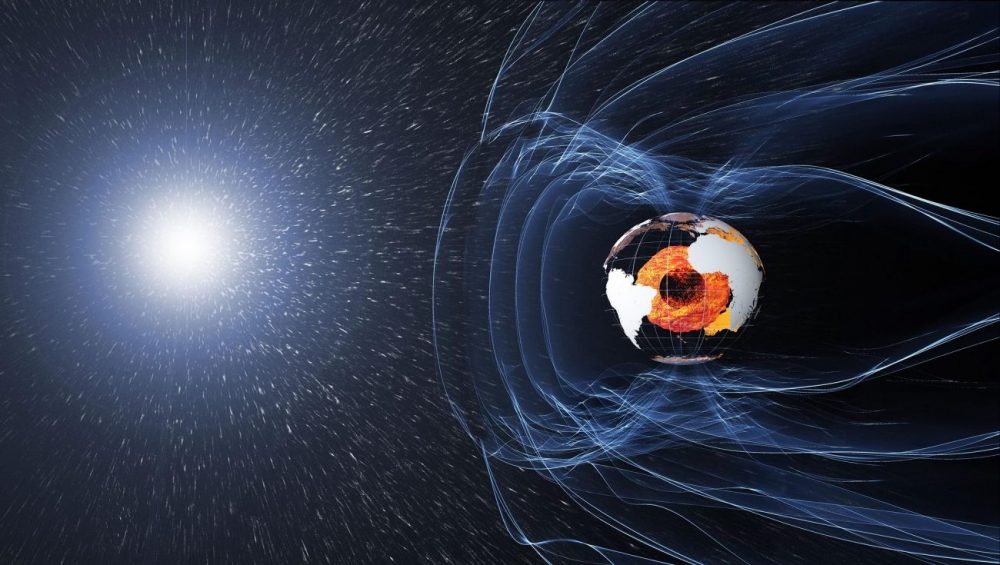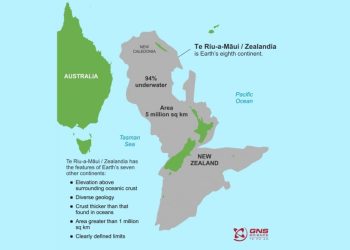Scientists have found that Earth’s magnetic north has been moving towards Siberia (Russia) approximately 55 kilometers in the last few years.
This speed, say, experts, is much faster than what they had previously estimated.
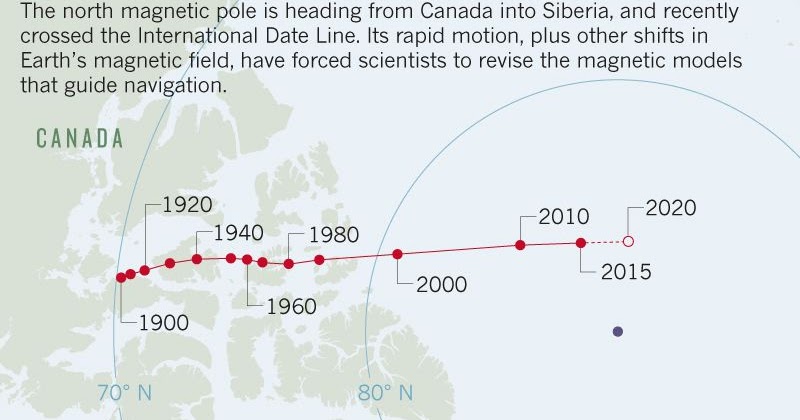
And while magnetic north has never been still, scientists have begun noticing that in the last few years, it has shifted into a higher gear, causing it to gallop across the Northern Hemisphere.
Strangely, scientists still don’t know why.
In fact, scientists have reported that the changes have been so significant, they had to begin working on an emergency update for the World Magnetic Model; a mathematical l system that lays the foundations for navigation, as well as cell phones and ships to commercial airlines.
In other words, the World Magnetic Model (WMM) gives compasses the means to navigate north.
The New World Magnetic Model update was officially released on Monday, February 4, 2019.
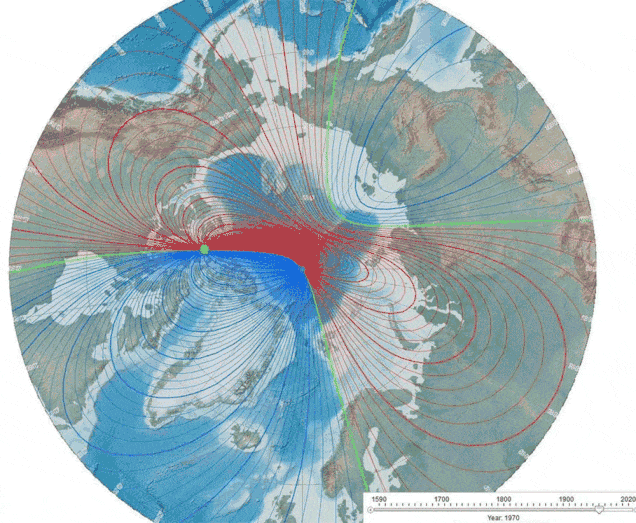
And while we now know where the new magnetic north lies, the question that remains unanswered is: Why is the magnetic pole changing so fast?
If we take a look at history, since 1831 when the magnetic north was first measured in the Canadian Arctic, scientists have found it has moved nearly 2300 km towards Siberia.
Strangely, since 2009, the movement rate changed from around 15 kilometers per year to around 55 kilometers a year, which is three times faster than what scientists had anticipated.
“The error is increasing all the time,” Arnaud Chulliat, a scientist at the University of Colorado Boulder, explained to Nature.
Earth’s magnetism originates from its scorching hot core located deep beneath the surface. The core is filled with liquid iron.
As our planet rotates, the moving iron produces electric currents that provide Earth with a magnetic field.
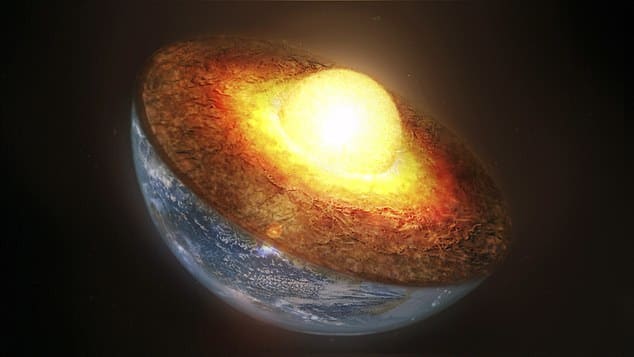
The magnetic field of our planet has been found to constantly change, and scientists estimate that every 300,000 years or so, the poles may even flip.
In fact, according to scientists, the last time this happened was some 780,000 years ago, which has led some experts to believe that our planet is overdue a flip.



